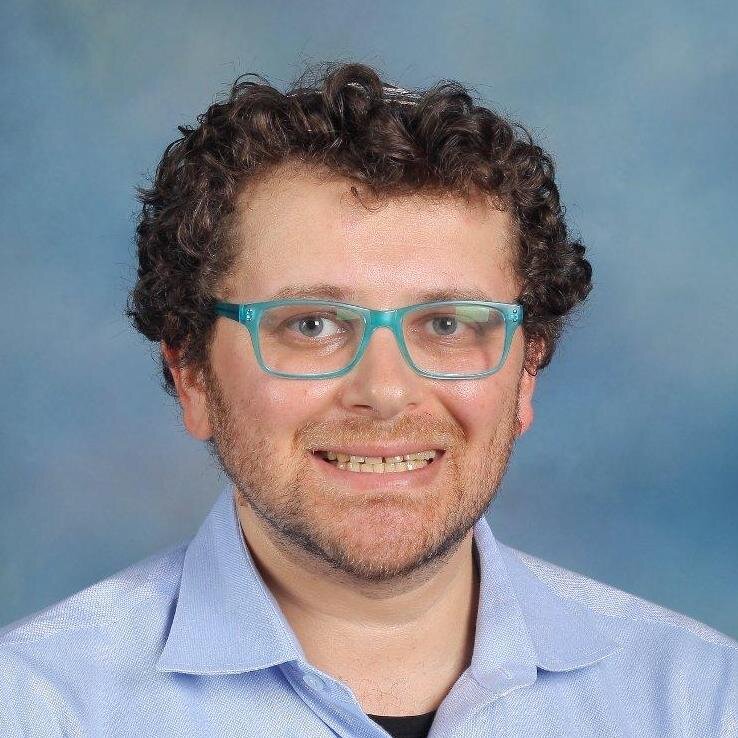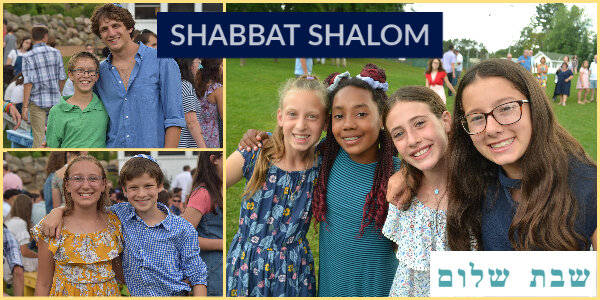Please enjoy a d’var Torah this week from Rabbi Zachary Silver. Rabbi Silver serves as the Rav Beit Sefer (school rabbi) at Rochelle Zell Jewish High School in Deerfield, Illinois, where he oversees Jewish life at the school and teaches in the Jewish Studies department. He spent his summers at Ramah Wisconsin and with Ramah Israel between 1995 and 2007, where he served on tzevet as a counselor, rosh eidah (Shoafim 2005 and 2006), and director of out-of-camp trips. He and his wife Tamara live in Lakeview and look forward to introducing their four-month-old son Nadav to the joys of camp.
Choose Life: Reflections on Parashat Nitzavim
by Rabbi Zachary Silver
As we conclude the book of Deuteronomy, we open parashat Nitzavim with the Israelite people standing before God to affirm the covenant that God originally promised to Abraham, Isaac, and Jacob. But this one is not exclusively for these specific people standing before God — it is both for future generations and for all those who never even glimpsed the Promised Land.
As the original Rosh Eidah, Moses notes that the vision for the future is not about one person, one leader, but about what came well before him and exists in the collective memory of the people, and also those who will live well beyond him. To be an Israelite, to be a Jew, is to live in the nexus between past and future, to recognize both the immediacy and prescience of the present and also the humility that we must trust our students to carry the covenant into the future.
While standing on the mountaintop, or givah, if you prefer, in letting go and accepting his fate, Moses acknowledges that he cannot force his heirs to carry forward the message that he has devoted his life to.
The challenges of transmitting covenantal connection and mandates have always been difficult throughout Jewish history. But this challenge has become ever more complicated for us as moderns after the Emancipation, perhaps especially so in America. How do we transmit Torah in an era with infinite choice and with few outside forces compelling us to live as Jews together?
In parashat Nitzavim, Moses establishes that the people will have a choice for how to live in the future, with none other than Heaven and Earth as the witnesses to his claim:
“I have put before you life and death, blessing and curse. Choose life — if you and your offspring would live — by loving the Lord your God, heeding God’s commandments, and holding fast to God. For thereby you shall have life and shall long endure upon the soil that God swore to your ancestors, Abraham, Isaac, and Jacob, to give to them” (Deut. 30:19).
Fittingly, choosing life means living a life of both law and meaning, one that is both vivid and vital, connected to the past and living fully in the present. Moses serves as a model parent and educator, knowing well that he cannot possibly guarantee the future, but also teaching that what matters most in life is covenant, both between humanity and God and between humans.
In citing these verses, Maimonides also reassures teachers and parents that the work is never over; we will never truly know when and how our students hear our messages and act on them, and that true education is a long process:
This [i.e. free choice] is a fundamental principle of the Torah and its mitzvot, as it says, “See I set before you this day life and prosperity, death and adversity.” (Deut. 30:15). And it is also written, “See this day I set before you blessing and curse” (Deut. 11:26). This means that choice is given to you, and whatever a person desires to do of human actions he/she may do — whether good or bad. It is on account of this that it says, “May they always be of such mind, [to revere Me and follow all my commandments, that it may go well with them and with their children forever]” (Deut. 5:26). Thus, the Creator does not coerce people or predestine them to do good or bad, rather everything is given over to them to choose (emphasis mine). (Hilchot Teshuvah 5:3).
Chancellor Arnold Eisen of the Jewish Theological Seminary notes well that the commandment to choose life is “perhaps the most fundamental commandment that the Torah enunciates” [1] for it does the following:
It presumes that humans are to some degree capable of obedience – for why would God have made a covenant with us if obedience were not possible?
This world can be made good and it can be made good on our terms.
Human life overflows with significance that we can grasp but cannot fully comprehend.
Deuteronomy wants to reassure us that history will conform to the divine plan, that the people will “choose life.” [2]
Reading this parashah with the backdrop of our current reality of quarantining from a deadly pandemic and being re-awakened to the horrifying scourge of racism and anti-Semitism in the United States, it feels helpful to return to these words, in particular. Although we may feel helpless to confront biological and societal diseases, we have the opportunity “to choose life.” Now more than ever, we need to be reminded of this powerful wisdom. We are simultaneously connected to the covenant of our ancestors and we have choices to make about how to move forward into the future. These times require faith and trust in the covenant, as well as new and dynamic approaches to it.
Hope is very often a revolutionary act. And it is one which has deep roots for us as individuals and as a community rooted in covenant. While we may not see the Promised Land, Moses offers the vision of a seasoned Ramah staff member, assuring us that to be a part of the covenant means that we must aspire to Alexander Hamilton’s words in Lin-Manuel Miranda’s musical and “plant seeds in a garden we might never get to see.”
[1] Eisen, “Taking Hold of Deuteronomy,” Judaism 47:3 (1998): 326
[2] Ibid., 326-327







